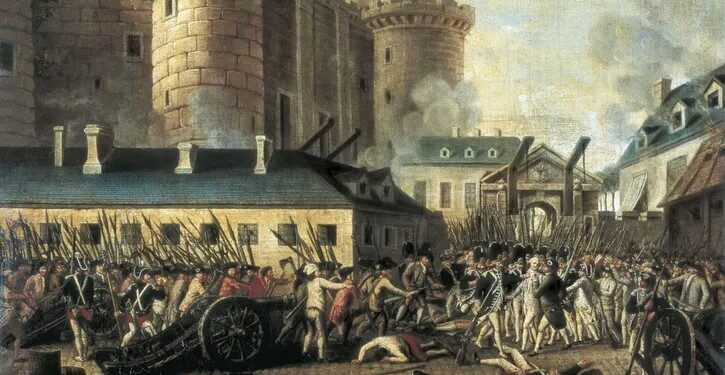The storming of the Bastille by an armed mob in Paris has marked a turning point in France’s political crisis, signalling the collapse of royal authority and the rise of a revolutionary movement that now grips the capital.
Attack on symbol of tyranny
On 14 July, hundreds of Parisians gathered outside the medieval fortress of the Bastille, long seen as a symbol of royal absolutism and arbitrary detention. Demanding the surrender of the prison’s garrison and the release of its symbolic prisoners, the crowd — composed of artisans, merchants, and armed citizens — faced resistance from the governor, Bernard-René de Launay.
After hours of tension and exchange of fire, the fortress fell to the insurgents. De Launay was seized by the mob and brutally executed, while the Bastille’s few remaining prisoners — seven in total — were freed. The fall of the Bastille was greeted with jubilation across the city, while officials loyal to the monarchy fled or went silent.
Collapse of royal control
The seizure of the Bastille comes amid deepening economic and political unrest across France. Widespread food shortages, soaring bread prices, and anger over taxation have fuelled public resentment towards King Louis XVI and his court. Attempts to reform the state’s finances and governance have been repeatedly blocked by entrenched interests, leaving the monarchy isolated and increasingly out of touch.
This week’s events follow the King’s decision to dismiss his popular finance minister, Jacques Necker, and reinforce troops around Paris — actions widely seen as provocative and repressive. In response, citizens began to arm themselves and form militias, culminating in today’s assault on the Bastille.
Implications for France and beyond
The storming of the Bastille has electrified political sentiment in Paris and beyond. For the revolutionaries, the event has become a defining moment — proof that collective action can defeat tyranny. It has also emboldened local assemblies and militias, many of which are now asserting power independently of royal authority.
Across Europe, monarchies are watching with apprehension. What began as a fiscal crisis in the French court has now erupted into a full-scale political upheaval, with revolutionary fervour spreading rapidly among urban populations. Diplomatic circles are bracing for instability, and questions are being raised about the survival of the French monarchy itself.
The birth of a new order
As Parisians celebrate in the streets, plans are already under way to reshape France’s political future. The National Assembly, which recently declared itself the legitimate representative of the people, is likely to gain momentum in the days ahead. The King, meanwhile, faces mounting pressure to accept constitutional reform or risk further chaos — or worse.
With the Bastille’s fall, the balance of power has decisively shifted. What comes next may not be peace, but it will no longer be ruled from Versailles.
REFH – Newshub, 14 July 2025



Recent Comments